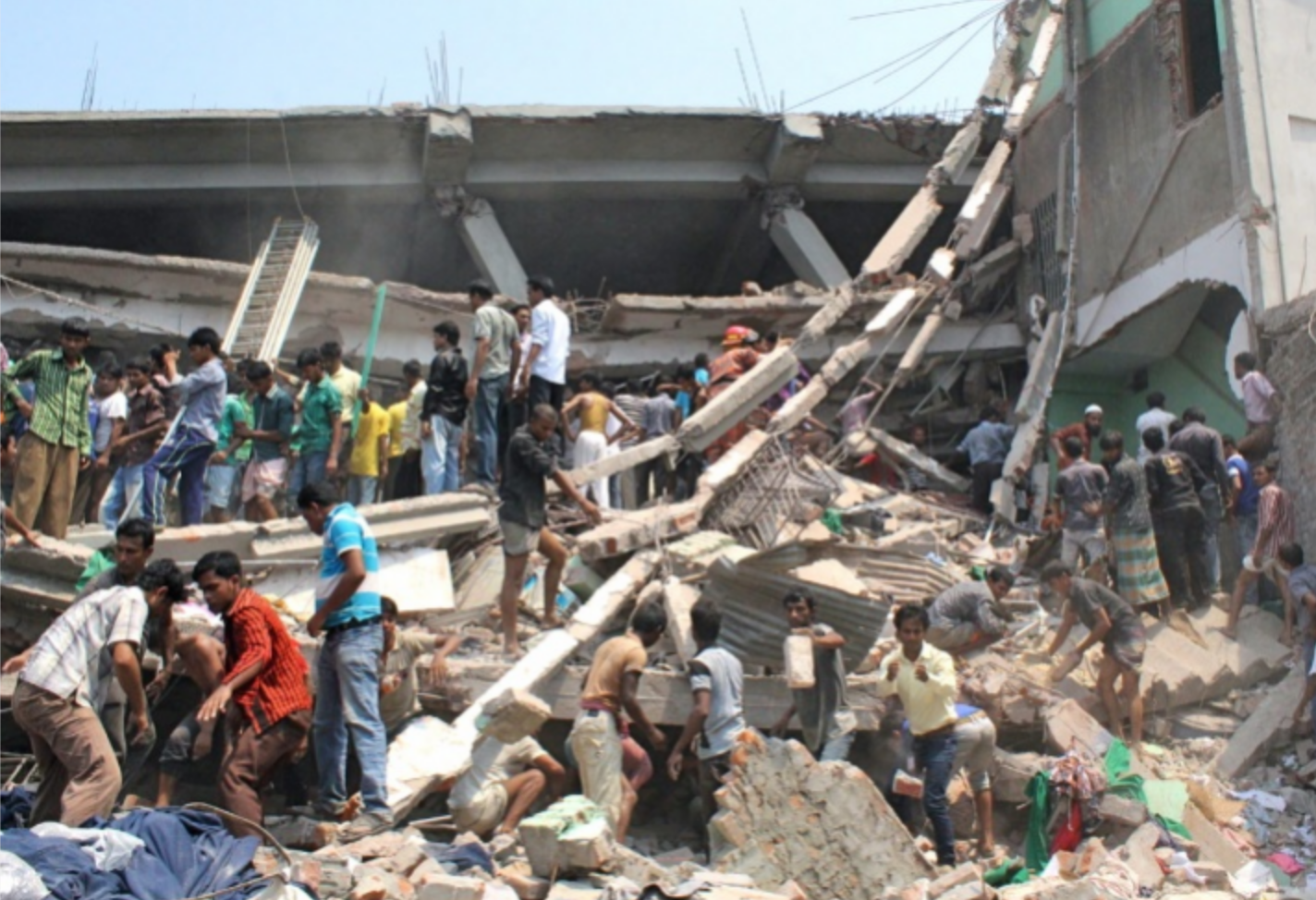24 April, 2017Today marks the fourth anniversary of the Rana Plaza collapse, killing 1,138 workers and injuring thousands more. Although progress has been made, efforts to make Bangladesh’s garment industry a safe place for workers are still needed and the Bangladesh Accord must continue beyond 2018.
The Accord on Fire and Building Safety in Bangladesh, the first binding supply chain agreement signed by garment brands and trade unions, has seen hundreds of factories inspected and many working hazards remedied since its creation in 2013.
But with only one more year to go and the majority of factories behind schedule with repair plans, IndustriALL Assistant General Secretary Jenny Holdcroft says that the garment industry in Bangladesh is at a critical point and that making the industry safe must be a priority.
“With only one year left of the Accord, we need a new agreement or there is a real risk of safety standards slipping back to where they were in 2012. The government is not yet in a position to be able to guarantee workers’ safety in the factories and we are committed to continuing the Accord until they are.”
“Together with UNI Global Union we are currently in negotiations with brands for a new agreement, which will ensure that the work is continued.”
The Accord makes a difference and saves lives. Since its creation, there have been no workplace fatalities due to fire, electrical or structural hazards at an Accord-covered factory with an active or completed action plan.
And earlier this month, swift union action prevented a potential tragedy, clearly showing that strong trade unions are needed to achieve a safe and sustainable garment industry.
“The government as well as the employers have little commitment to freedom of association. The world is still watching and if more progress is not made on factory safety, freedom of association, and wages, confidence in Bangladesh as a garment sourcing country will be affected.”
IndustriALL Global Union is part of a coalition of trade unions and NGOs behind a recently launched transparency pledge, where companies commit to publish information on where their products are made. The pledge draws upon existing good practices of global apparel companies and sets a floor, not ceiling, for supply chain transparency.
72 companies contacted, 17 of which are expected to fully implement the transparency pledge by December 2017.
“Increased accountability means issues along the supply chain can be addressed and solutions found faster. Garment brands needs to take full responsibility and increased transparency is an important step for improving industrial relations,” says Jenny Holdcroft.
